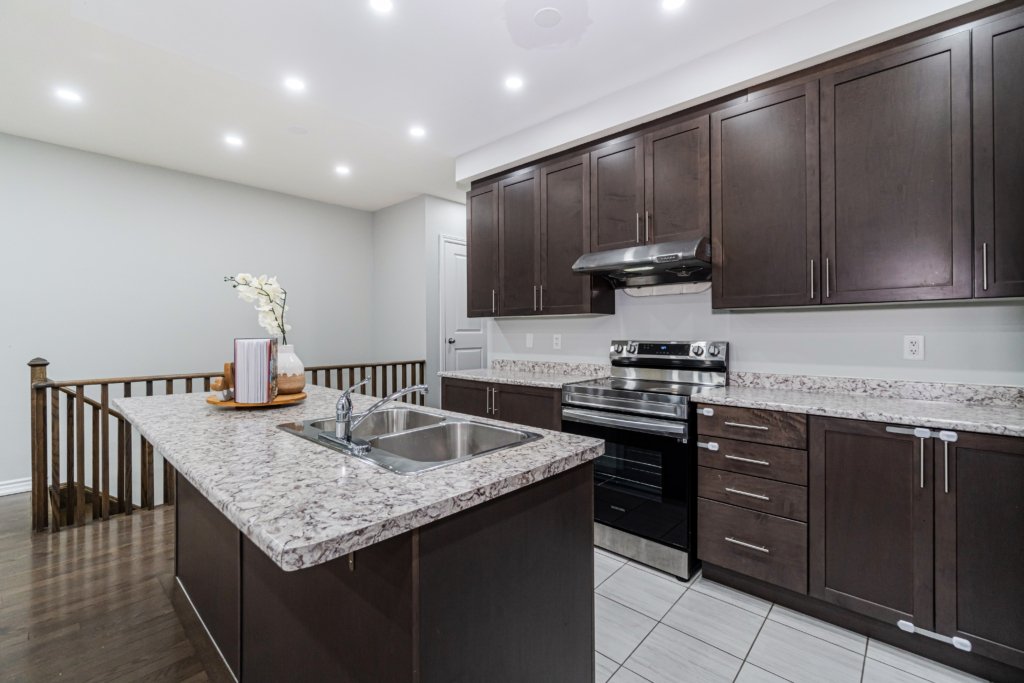Understanding the Dilemma: Buy First or Sell First?
As a homeowner facing the real estate market, you may find yourself caught in a significant dilemma: should you buy a new house before selling your current one, or is it wiser to sell your existing home first? This is a question often discussed among housing experts, particularly for those venturing into the selling process for the first time.
Your decision could hinge on various factors, including current market conditions and your financial capacity to handle two properties simultaneously. While some banks offer financing options to accommodate buying and selling concurrently, this often leads to higher interest rates and the challenge of managing two mortgages, along with the burden of paying double utility bills.
Experts highlight that the state of the market largely influences the strategy you choose. In a competitive seller’s market, buying first may secure your next home before selling your current one. Conversely, in a buyer’s market, selling your home first might be a more prudent choice, as it helps avoid the risks associated with an unsold property and unnecessary haste in finding a new place.
- Advantages of Buying First: This allows you to search for the right home without the pressure of needing a quick sale. This method can help avoid the anxiety of temporary housing or storage.
- Disadvantages of Buying First: Not everyone can tackle the financial burden of dual expenses during the transition. It may stretch your budget significantly.
- Advantages of Selling First: This approach gives you a clearer understanding of your budget for the next purchase, as the sale proceeds can directly contribute to your down payment.
- Disadvantages of Selling First: There’s the potential need to price your home attractively for a quick sale, which can be stressful when considering the financial implications of selling at a discount.
Additionally, keeping an eye on the housing market is vital. An increase in prices could result in higher expenses if you delay your purchase, particularly if rental costs continue to rise, making temporary leasing arrangements financially burdensome.

To make an informed decision, contemplate key questions: Do you have adequate funds for a down payment, or will you be depending on the sale of your current home? Are you comfortable with the possibility of managing two mortgages at once? What is the current trend in your local housing market? Finally, do you have backup plans should unforeseen challenges arise? Engaging with an experienced real estate agent can provide valuable insights tailored to your situation.
Understanding these dynamics can help you navigate this complex choice more confidently, making sure your transition into your next home is as smooth as possible.
Market Dynamics: Deciphering Buyer and Seller Environments
When you step into the real estate market, one of the pivotal questions you might face is whether to buy a new house before selling your existing one or to sell first. This inquiry can significantly impact your overall experience as a homeowner, especially if you find yourself navigating this process for the first time. Your choice will depend on a combination of current market conditions, your financial situation, and lifestyle preferences.
Experts, highlight that understanding the market can be critical. In a seller’s market, where demand exceeds supply, purchasing a new home before selling could be beneficial. This approach allows you to secure a suitable place without the pressure of a quick sale on your current property. Conversely, in a buyer’s market, where listings outnumber buyers, it may be wise to sell your existing home first. This way, you can avoid the pitfalls of owning two properties simultaneously, which can lead to financial strain from double mortgages and utility bills.
There are distinct pros and cons to each strategy. For instance, buying first offers the luxury of time. Without the urgency of needing to secure a buyer, you can focus on finding a home that genuinely meets your requirements. This option alleviates the stress of temporary housing or storage solutions while you search. However, it can also lead to doubled expenses, a major consideration for anyone’s budget.
On the other hand, selling first can provide an accurate financial picture for your next purchase. The proceeds from your home can directly support your down payment, minimizing the need to tap into savings or investments. This route often allows more leverage while negotiating the price of your new home. However, it does carry the risk of needing to sell at a discount, particularly if you require a rapid transaction.

The housing market is typically fluid, with conditions changing frequently. For instance, if house prices have risen significantly—let’s say by X% in the previous year—there might be a chance that waiting to buy could result in even higher costs down the road. The supply and demand curve also varies by season; housing demand is frequently higher in summer months, which could affect your timeline for selling or buying.
To make an informed decision, consider key questions: Do you have available funds for a down payment, or are you depending on your current home sale? Are you ready to handle the financial and emotional challenges of potentially maintaining two mortgages? And what is the current direction of the housing market? Seeking advice from an experienced real estate agent can provide tailored insights that enhance your confidence as you navigate this complex terrain.
‘Understanding the market is half the battle in real estate.’ – Market analyst
Pros and Cons: Weighing Each Option
Deciding whether to buy a new home before selling your existing one is a common dilemma faced by many homeowners, especially those venturing into the real estate market for the first time. Each choice presents its own set of advantages and disadvantages that can significantly influence your financial situation and personal stress levels.
Advantages of Buying Before Selling
- More Options: Purchasing a home first allows you to explore various options without the pressure of needing to sell your current house quickly.
- Time Flexibility: You can take your time to find a home that best suits your family’s needs. This can alleviate the anxiety of securing temporary housing or storage.
- Better Negotiation Power: Once you’ve secured your new home, you can negotiate more effectively when it comes time to sell your old one.
Disadvantages of Buying First
- Financial Strain: The burden of managing two properties can lead to significant financial pressure. According to reports, X% of sellers faced financial strain while attempting to juggle two mortgages.
- Complex Financing: You may have to finance the overlap, which could result in higher interest rates.
Evaluating Selling First
On the flip side, selling your home first can provide you with several distinct advantages:
- Clear Budgeting: Understanding the proceeds from your sale can give you a better idea of your budget when purchasing a new home.
- Lower Financial Risk: By selling first, you alleviate the financial pressure of carrying two mortgages and can avoid jumping into a purchase that you may regret later.
- Greater Certainty: You can plan your next move more seamlessly, reducing the likelihood of rushed decisions.
Potential Pitfalls of Selling First
However, this strategy is not without its risks:
- Market Volatility: If the market shifts, you may find yourself in a situation where home prices have risen, complicating your buying process.
- Possibility of Quick Sale Discounts: You might need to consider quick sale discounts in order to attract buyers in a saturated market, which can be a stressful situation.
‘We felt so much pressure to sell first, but it helped us know what we could afford.’ – Happy homeowner. “To Buy or Sell Your Home First? Navigating Your Transition”
In navigating these choices, you can draw upon valuable insights from families who’ve gone through similar transitions. Ultimately, consider your finances closely and ask essential questions: Are you prepared for the possibility of carrying two mortgages? How stable is the current housing market? A knowledgeable real estate agent can provide guidance tailored to your specific circumstances.
The Financial Perspective: Understanding Your Budget
As you embark on the journey of homeownership, grasping the importance of budgeting is paramount. This aspect can significantly influence the choices you make regarding whether to buy a new house before selling your current one or to sell first. Navigating these decisions requires a clear understanding of your own financial limits.

The Cost of Choices
When contemplating these strategies, consider the potential costs. For instance, if you decide to buy before selling, you may find yourself managing two properties concurrently, which can lead to double the mortgage payments and utilities. A statistic from the real estate sector unveils that a significant percentage of homeowners underestimate moving costs. This oversight can lead to unplanned financial strain.
Conversely, selling your home first may provide you with a concrete understanding of your budget for your next purchase. Proceeds from the sale can directly add to your down payment, thus shielding you from dipping into your savings or investments.

Ensuring Financial Readiness
To ensure financial readiness before diving into these crucial decisions, ask yourself a series of fundamental questions:
- Do you have sufficient funds for a down payment, or are you relying on the sale of your current home?
- Are you prepared for the implications of temporarily carrying two mortgages?
- What are the prevailing conditions in the housing market right now?
- Have you formulated contingency plans for unexpected challenges?
Reflecting on these questions can enhance your preparedness as you navigate your next steps. Additionally, investing time in creating a hypothetical budgeting scenario can help you visualize your expenses more clearly. Picture this: you decide to buy first and budget for the additional mortgage and utility payments. How does that shift your financial position, and what adjustments might you need to make?
‘Having a solid budget can be your safety net in real estate.’ – Financial advisor
Ultimately, approaching the real estate market with a well-thought-out budget can serve as your foundation for informed decision-making. As you explore these options, remember that remaining aware of the broader housing market dynamics is vital for long-term success.
Conclusion: Your Path Forward
As you reflect on your journey through the real estate landscape, it’s vital to pause and consider the key aspects influencing your decision-making process. Transitioning from one home to another is not just a logistical step; it’s a significant financial and emotional leap. Therefore, take a moment to examine your unique circumstances carefully. Are you prepared for the financial implications of managing two properties? Understanding your goals will help shape whether you buy a house first or sell your current one. The choice ultimately depends on your comfort level and market conditions.
Throughout this transition, seeking professional advice can be invaluable. Real estate agents possess the expertise to navigate the complexities of the market. Consider reaching out to them, as their insights can provide clarity and confidence as you make your choice. Remember the wisdom of experienced realtors:
‘Trust your instincts, but also lean on your advisors in this journey.’
It’s important to recognize that both paths—buying before selling or selling before buying—come with their own set of pros and cons. For instance, buying first allows for greater flexibility but can strain finances if you’re caught with two mortgages. Conversely, selling first may enhance your buying power but can lead to rushed decisions if the market is unfavorable. Each option has its merits, and the right one is unique to your situation.
In summary, homeowners who take the time to evaluate their choices often find higher satisfaction levels in their decisions. Timing can also play a crucial role; both sales and purchases at the right time can lead to substantial financial benefits. By asking yourself crucial questions and consulting with knowledgeable professionals, you can avoid common pitfalls associated with this transition.
TL;DR: Transitioning in the real estate market involves considering your personal circumstances and seeking professional advice. Weighing the benefits of buying or selling first can significantly impact your decision, so engage with experts to ensure a smooth process.





